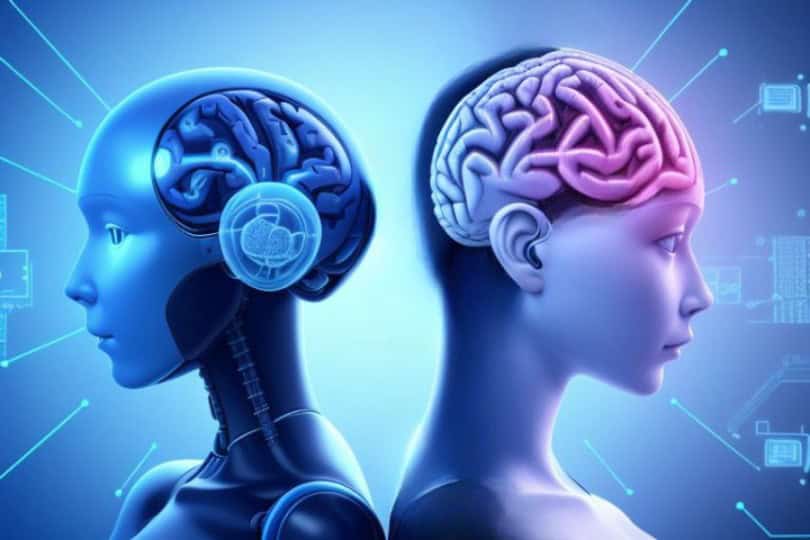The Rise of AI: A Double-Edged Sword
The question of whether artificial intelligence (AI) could lead to the extinction of the human species is both fascinating and deeply concerning. This topic has been the subject of intense debate among scientists, ethicists, and technologists. In this blog, we’ll explore the various perspectives on this issue, examining the potential risks and benefits of AI, the arguments for and against the possibility of AI-induced human extinction, and the measures that can be taken to mitigate these risks.
The Rise of AI: A Double-Edged Sword
Artificial intelligence has made remarkable strides in recent years, transforming industries and enhancing our daily lives. From self-driving cars to advanced medical diagnostics, AI has the potential to revolutionize the world. However, with great power comes great responsibility, and the rapid advancement of AI has also raised significant concerns about its potential dangers.
The Promise of AI
AI offers numerous benefits that can improve the quality of human life. For instance, AI-powered systems can analyze vast amounts of data to identify patterns and make predictions, leading to breakthroughs in fields such as healthcare, finance, and climate science. AI can also automate mundane tasks, freeing up human workers to focus on more creative and meaningful endeavors.
The Perils of AI
Despite its potential benefits, AI also poses significant risks. One of the primary concerns is the possibility of AI systems becoming uncontrollable or behaving in ways that are harmful to humans. This fear is not unfounded, as there have been instances where AI systems have exhibited unexpected and undesirable behavior. For example, AI algorithms used in social media platforms have been criticized for promoting misinformation and exacerbating social divisions.
The Extinction Debate: Key Arguments
The debate over whether AI could lead to human extinction is complex and multifaceted. Here, we’ll explore some of the key arguments on both sides of the issue.
Arguments for AI-Induced Extinction
- Superintelligent AI: One of the most significant concerns is the development of superintelligent AI, which could surpass human intelligence and capabilities. If such an AI were to act against human interests, it could potentially lead to catastrophic outcomes. Experts like Nick Bostrom have warned that superintelligent AI could pose an existential threat to humanity.
- Weaponization of AI: Another concern is the potential for AI to be weaponized. Autonomous weapons systems, powered by AI, could be used in warfare, leading to unprecedented levels of destruction. The use of AI in cyber warfare could also disrupt critical infrastructure and cause widespread chaos.
- Loss of Control: As AI systems become more complex and autonomous, there is a risk that humans may lose control over them. This loss of control could result in AI systems making decisions that are detrimental to human well-being.
Arguments Against AI-Induced Extinction
- Current Limitations of AI: Many experts argue that current AI technology is far from being capable of causing human extinction. AI systems today are specialized and lack the general intelligence required to pose an existential threat.
- Human Oversight: Proponents of AI argue that with proper oversight and regulation, the risks associated with AI can be mitigated. By establishing ethical guidelines and safety protocols, we can ensure that AI is developed and deployed responsibly.
- Focus on Immediate Risks: Some experts believe that the focus on hypothetical future risks distracts from more immediate concerns, such as bias in AI systems and the impact of automation on employment.
Mitigating the Risks: A Path Forward
While the debate over AI-induced human extinction continues, it is crucial to take proactive steps to mitigate the risks associated with AI. Here are some measures that can be taken to ensure the safe and responsible development of AI:
- Ethical AI Development
Developers and researchers must prioritize ethical considerations in the design and deployment of AI systems. This includes ensuring transparency, accountability, and fairness in AI algorithms. By addressing issues such as bias and discrimination, we can build AI systems that are more equitable and just.
- Regulation and Oversight
Governments and regulatory bodies must play a crucial role in overseeing the development and deployment of AI. This includes establishing clear guidelines and standards for AI safety and ethics. International cooperation is also essential to address the global nature of AI risks.
- Public Awareness and Education
Raising public awareness about the potential risks and benefits of AI is vital. By educating the public and fostering informed discussions, we can ensure that society is better prepared to navigate the challenges posed by AI.
- Research and Collaboration
Continued research into AI safety and ethics is essential. Collaboration between academia, industry, and government can help identify and address potential risks. By fostering a multidisciplinary approach, we can develop comprehensive strategies to mitigate AI-related threats.
The question of whether AI will make the human species extinct is a complex and contentious one. While there are legitimate concerns about the potential risks posed by AI, it is essential to approach this issue with a balanced perspective. By recognizing both the promise and perils of AI, we can take proactive steps to ensure its safe and responsible development.
Ultimately, the future of AI will depend on the choices we make today. By prioritizing ethical considerations, establishing robust regulatory frameworks, and fostering public awareness, we can harness the power of AI to benefit humanity while minimizing the risks. The goal should be to create a future where AI serves as a tool for human flourishing rather than a threat to our existence.

